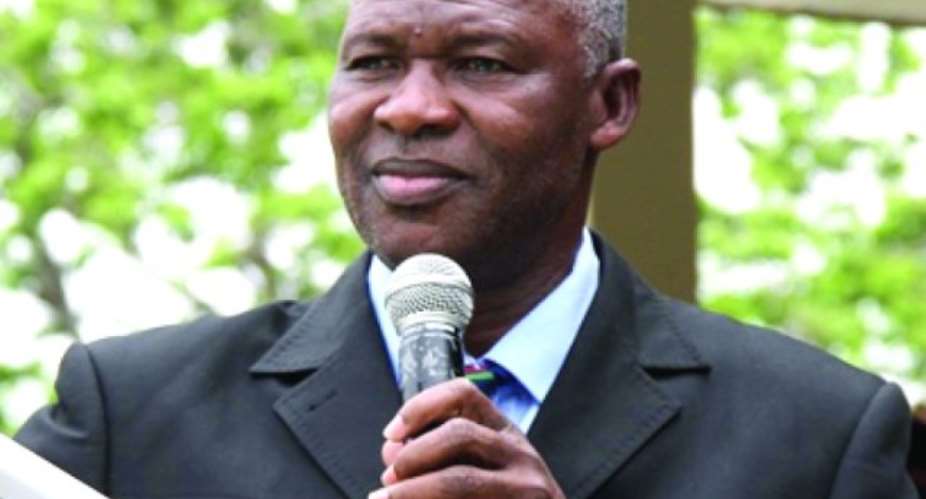By: Prince Armah, (Ph.D) & Selete Avoke, (Ph.D)
Few weeks ago, the Ghana Education Service (GES) extracted an amount of sixty-two Ghana cedis (GH¢62.00) from about 4,570 graduate teachers/applicants shortlisted to take part in an aptitude test conducted on 21st May 2016. The GES had previously posted on their website an advertisement seeking to recruit graduate teachers to teach English Language, Maths, Science and Geography at the Senior High School level. Graduate teachers/applicants who were shortlisted were subsequently required to make this payment to GES before they could be even considered to take part in the aptitude test/examination for their recruitment into the education service.
Respectfully, we together with many likeminded Ghanaians vehemently opposed this directive given by GES. We thought that, GES is a public institution funded with the taxes of taxpayers and these taxpayers include the graduate teachers who applied. It was therefore unjust, unfair and discriminatory for GES to extract the said amount from these desperate graduate teachers. Truth be told, the prospective candidates are unemployed. How could GES ask unemployed graduates to pay a fee so that they may be considered for employment? Is GES becoming a private recruitment agency?
For GES to demand this amount from these desperate job seekers was crude exploitation, pure and simple. Who benefited from these fees? When did it become a norm to ask unemployed individuals to pay a fee in order for them to have the opportunity not to be even employed but to take an aptitude test? These questions went unanswered. But we asked because these graduate teachers are unemployed and desperate for jobs, and that is the more reason why they availed themselves to be employed by GES.
What even made GES’s action more questionable is the fact that, with companies and or institutions specifically set up to make profit, employers do not charge job seekers a fee for an aptitude test. In the first place when did GES require that prospective teachers should sit for an examination or an aptitude test? We have tried hard to locate which international teacher recruitment best practices the GES opted for. We found none, but the closest we found was that of the United States of America (USA). If GES is attempting to copy what prevails in the USA, whereby prospective teachers take the PRAXIS exams, then they are definitely doing a rather miserable job at copying. Within the USA system, students who plan on teaching after graduating know from the beginning of their studies that they have to take the PRAXIS before they complete their program of studies. Additionally, students have learning aids and practice materials available to them as they prepare for the PRAXIS exams. With regards to the GES, granted that this innovative test taking is in order, why did they not require as part of the university curriculum that students must pass an aptitude test, with accompanying information about the validity of and philosophy underpinning the test?
Again, there was no guarantee that all the graduate teachers who took the test would pass in order to be employed. Besides, research clearly indicates that a person’s total capabilities cannot be hinged on one single aptitude test. Additionally, such tests alone are not an absolute predictor of effective teaching and learning. The logical conclusion therefore is that the state have unjustifiably benefitted at the expense of students who need to be taught so badly and ripped off desperate graduates looking for employment.
GES was set up to provide service and thus, not a profit making entity. The services to be rendered by these graduate teachers are practically a selfless one and thus a contribution to the development of this country. Charging them for an examination/aptitude test was unfortunate, sad, and a tragedy. This should not be repeated. These unemployed graduate teachers/applicants rather need to be motivated not discouraged. Regardless of the fact that we did not receive any response from the Minister of Education on our petition to her on this matter, we will continue to appeal to her good office to take immediate steps to halt this unholy policy that is being implemented by the GES.
Dr. Prince Armah is the Executive Director of VAM Africa
Dr. Selete Avoke is an Expert in Education and Disability, USA





 We’ll no longer tolerate your empty, unwarranted attacks – TUC blasts Prof Adei
We’ll no longer tolerate your empty, unwarranted attacks – TUC blasts Prof Adei
 Bawumia donates GHc200,000 to support Madina fire victims
Bawumia donates GHc200,000 to support Madina fire victims
 IMF to disburse US$360million third tranche to Ghana without creditors MoU
IMF to disburse US$360million third tranche to Ghana without creditors MoU
 Truck owner share insights into train collision incident
Truck owner share insights into train collision incident
 Paramount chief of Bassare Traditional Area passes on
Paramount chief of Bassare Traditional Area passes on
 Two teachers in court over alleged illegal possession of BECE papers
Two teachers in court over alleged illegal possession of BECE papers
 Sunyani: Victim allegedly shot by traditional warriors appeals for justice
Sunyani: Victim allegedly shot by traditional warriors appeals for justice
 Mahama vows to scrap teacher licensure exams, review Free SHS policy
Mahama vows to scrap teacher licensure exams, review Free SHS policy
 Government will replace burnt Madina shops with a new three-story, 120-store fac...
Government will replace burnt Madina shops with a new three-story, 120-store fac...
